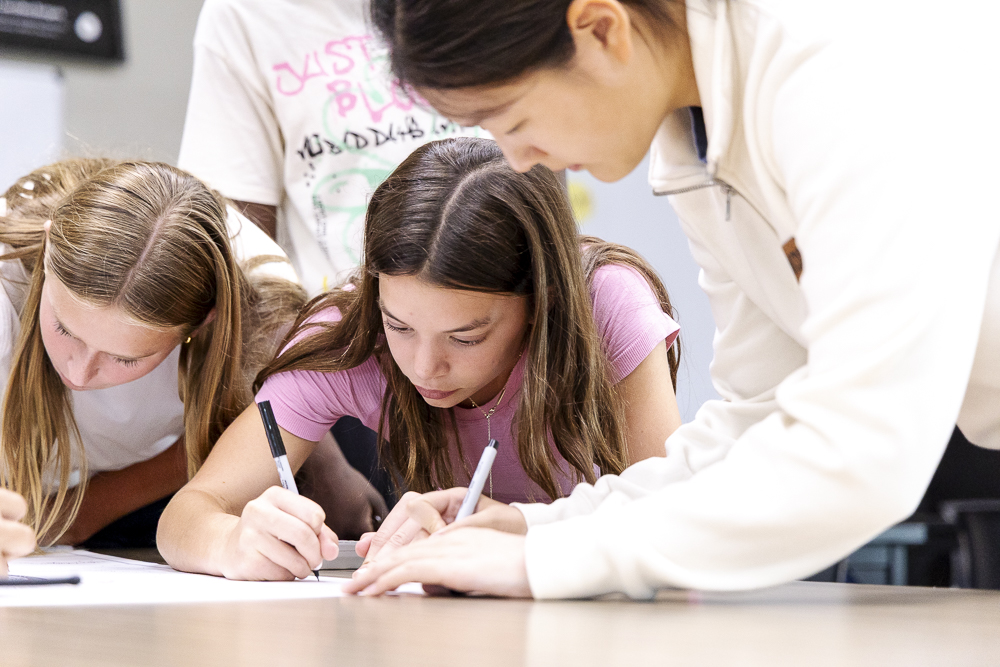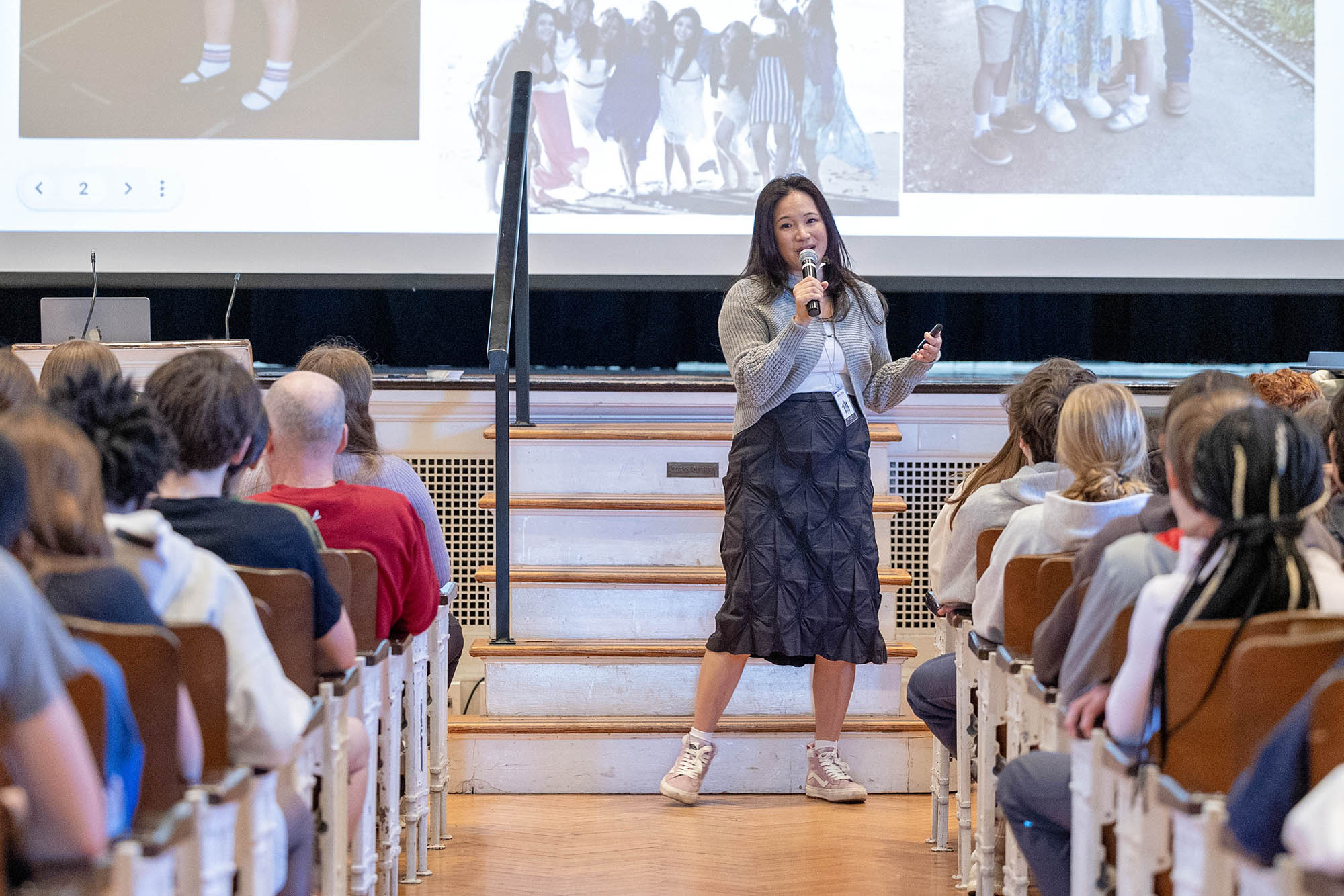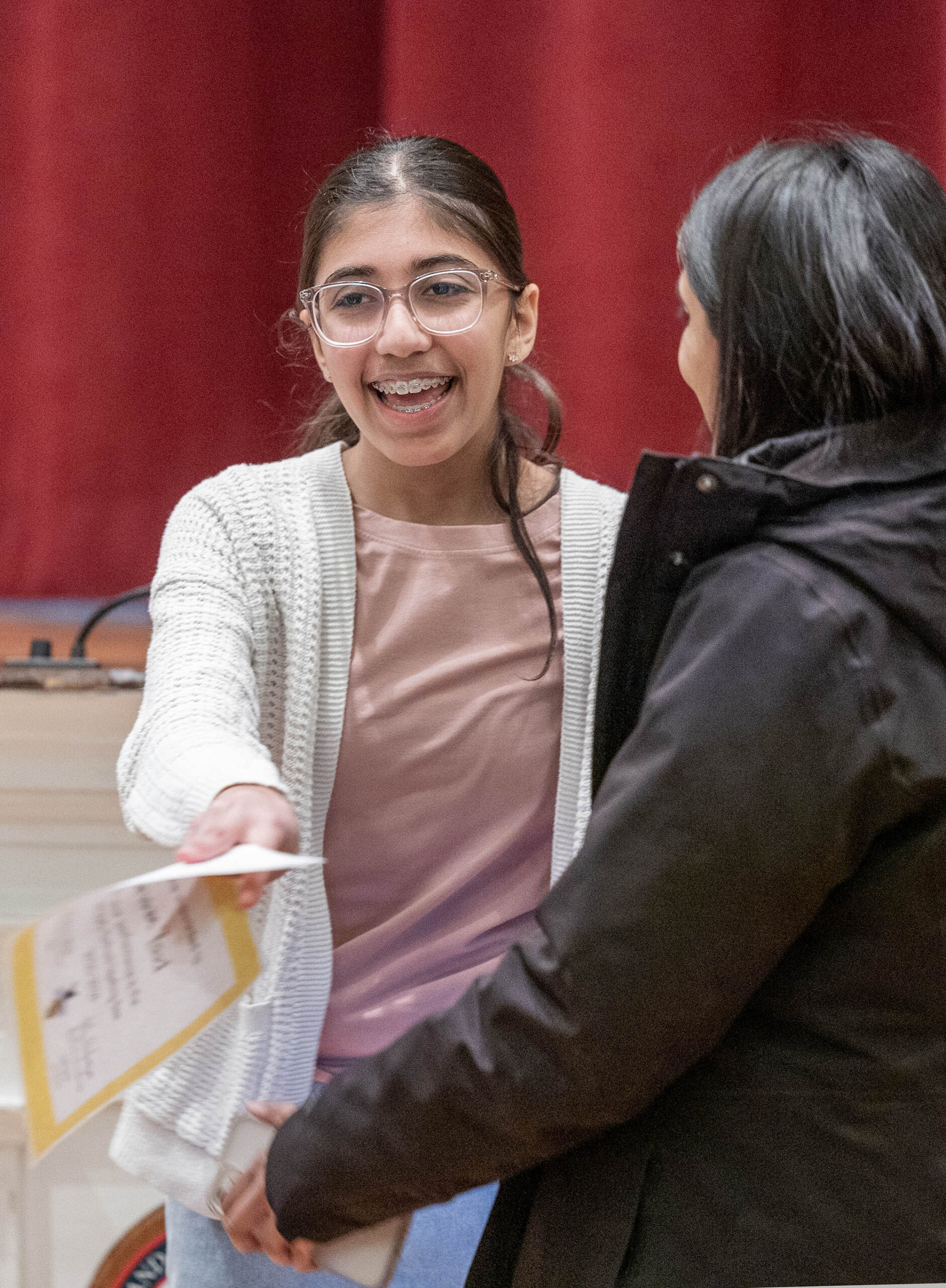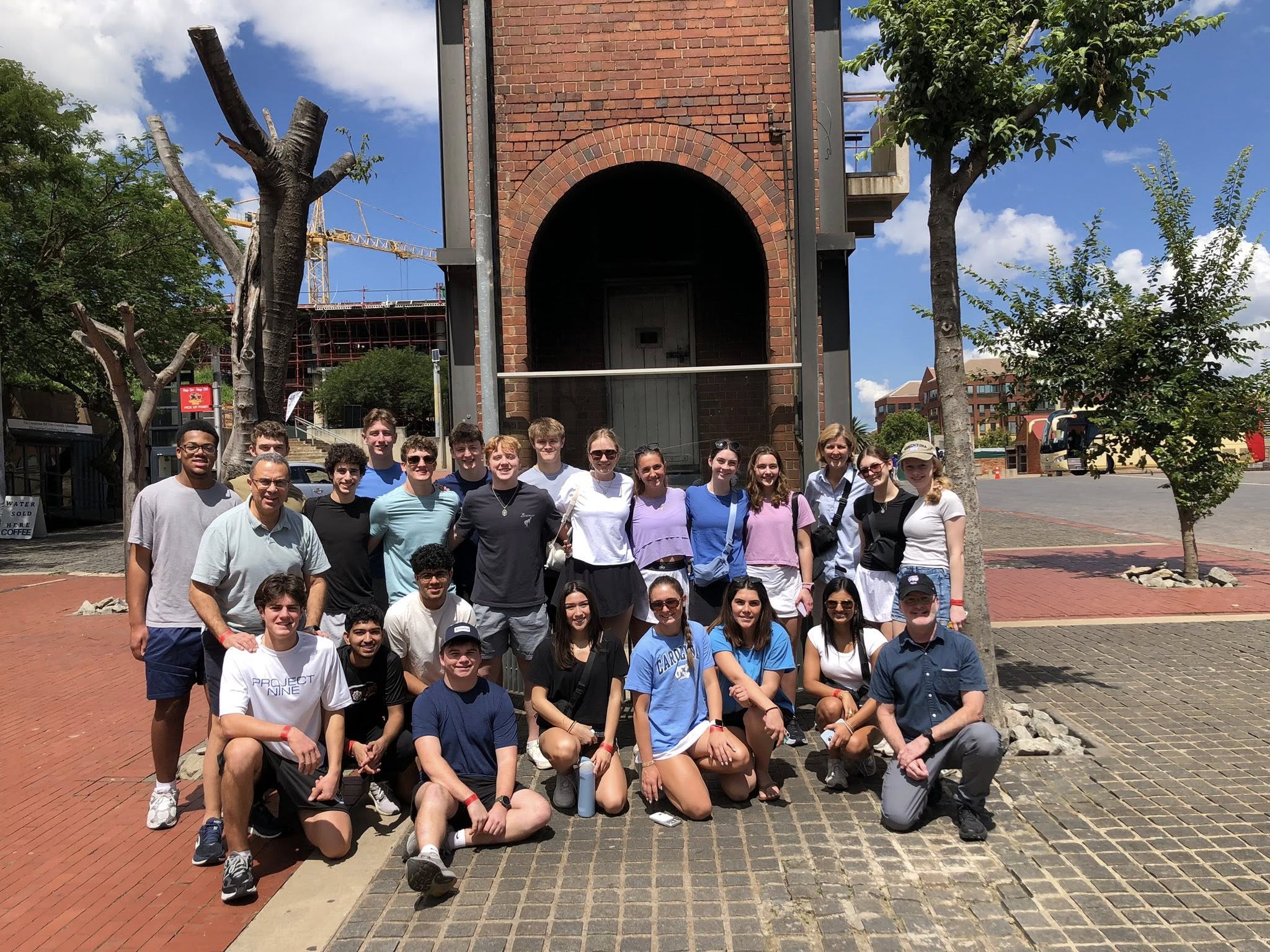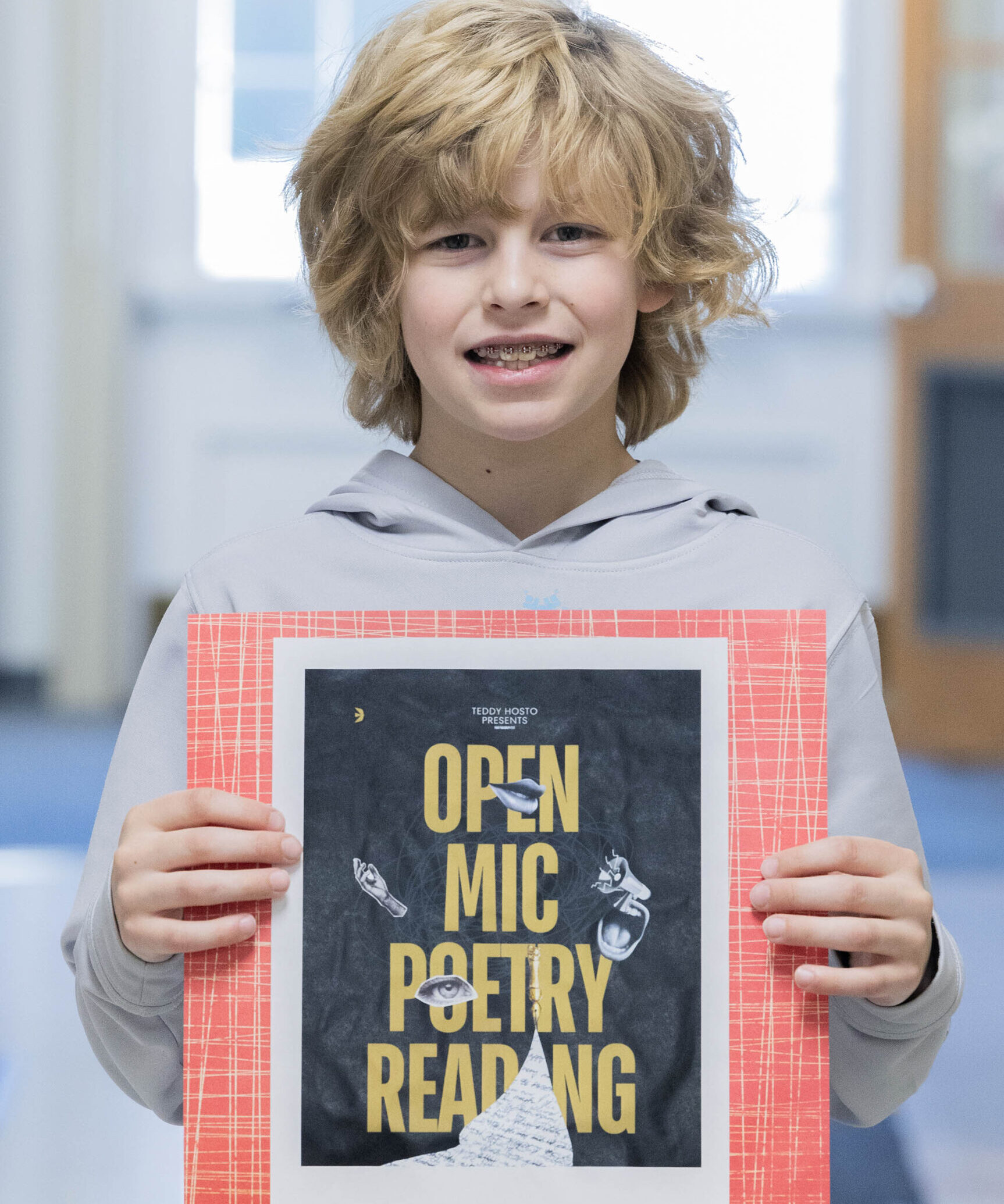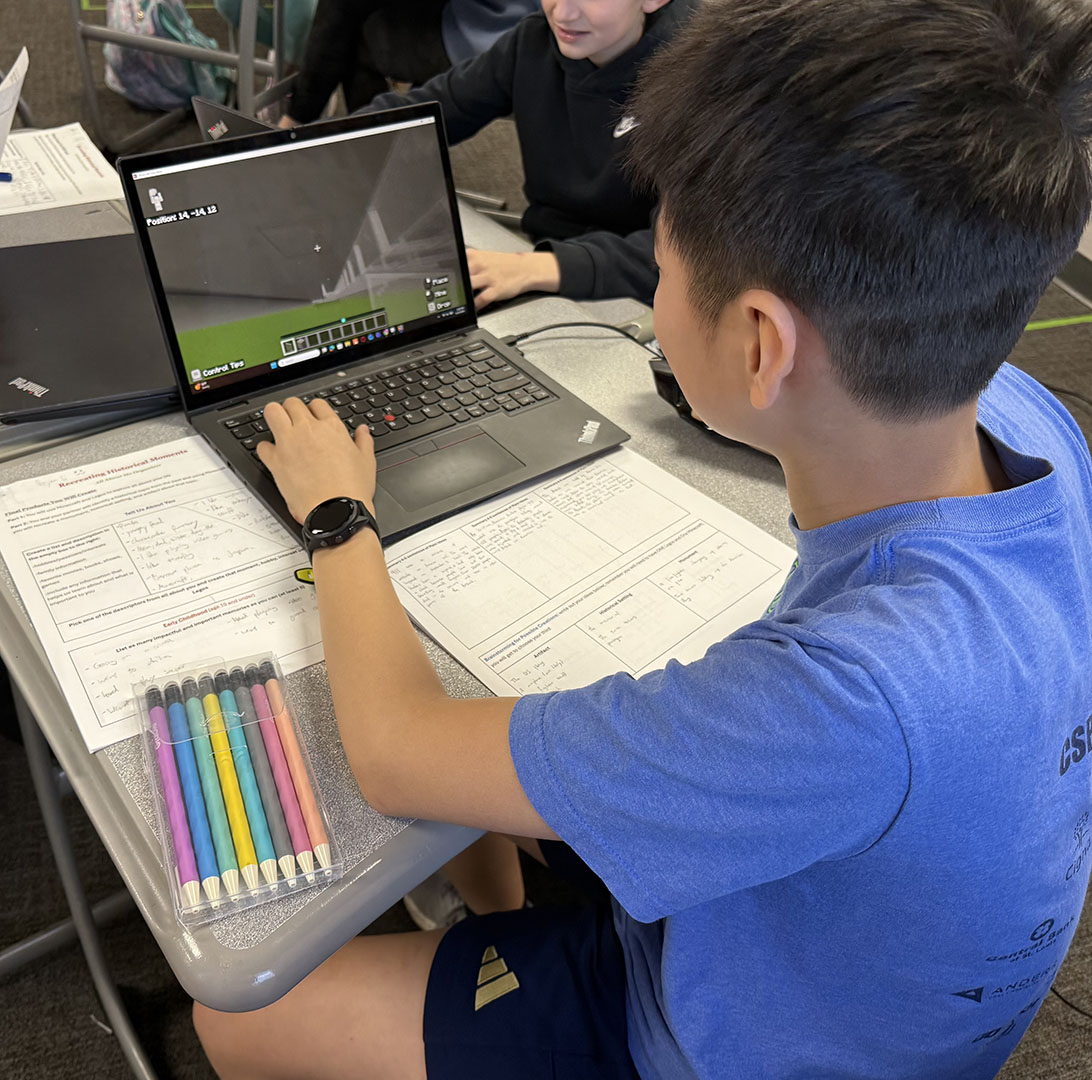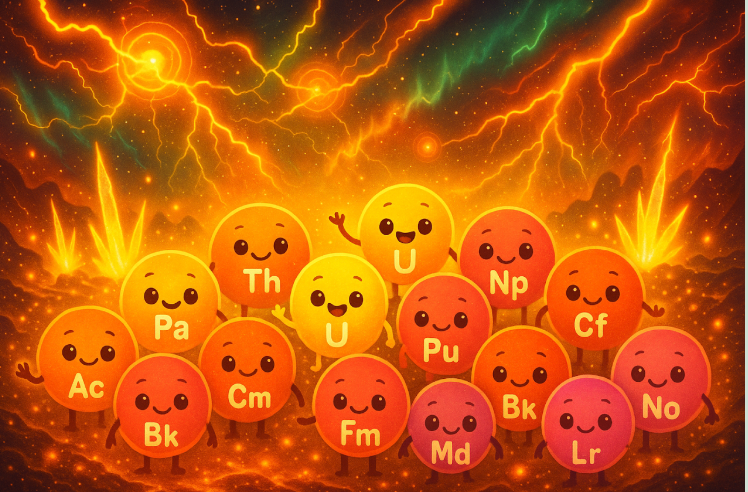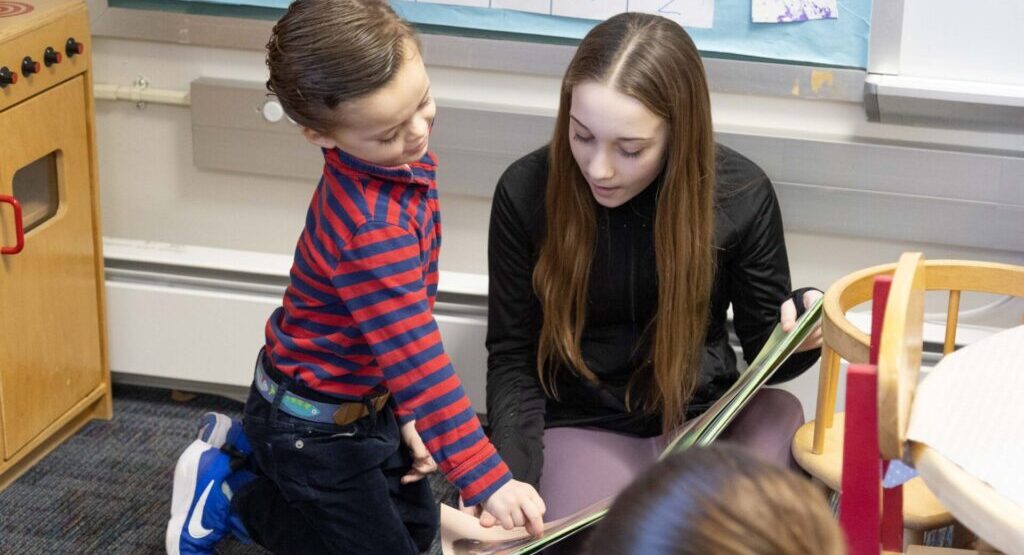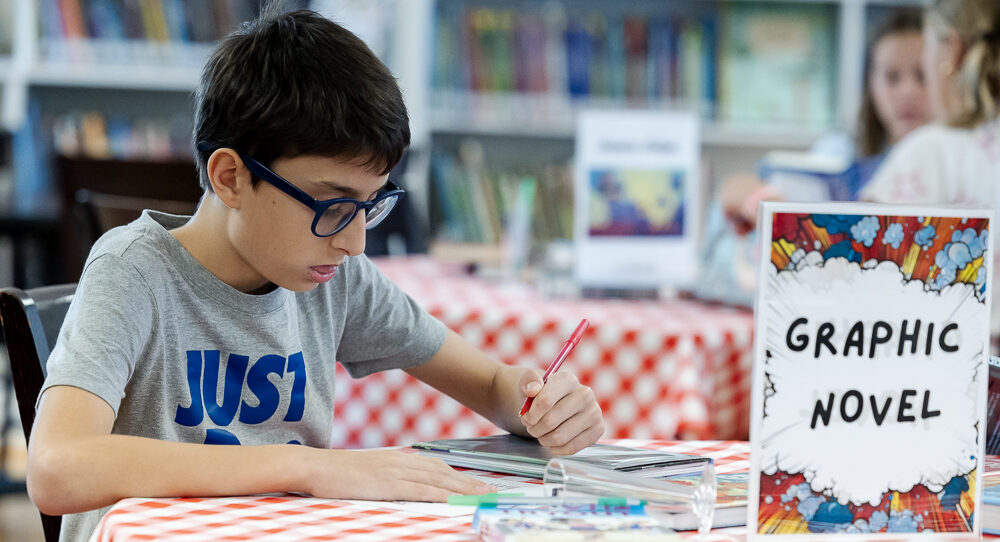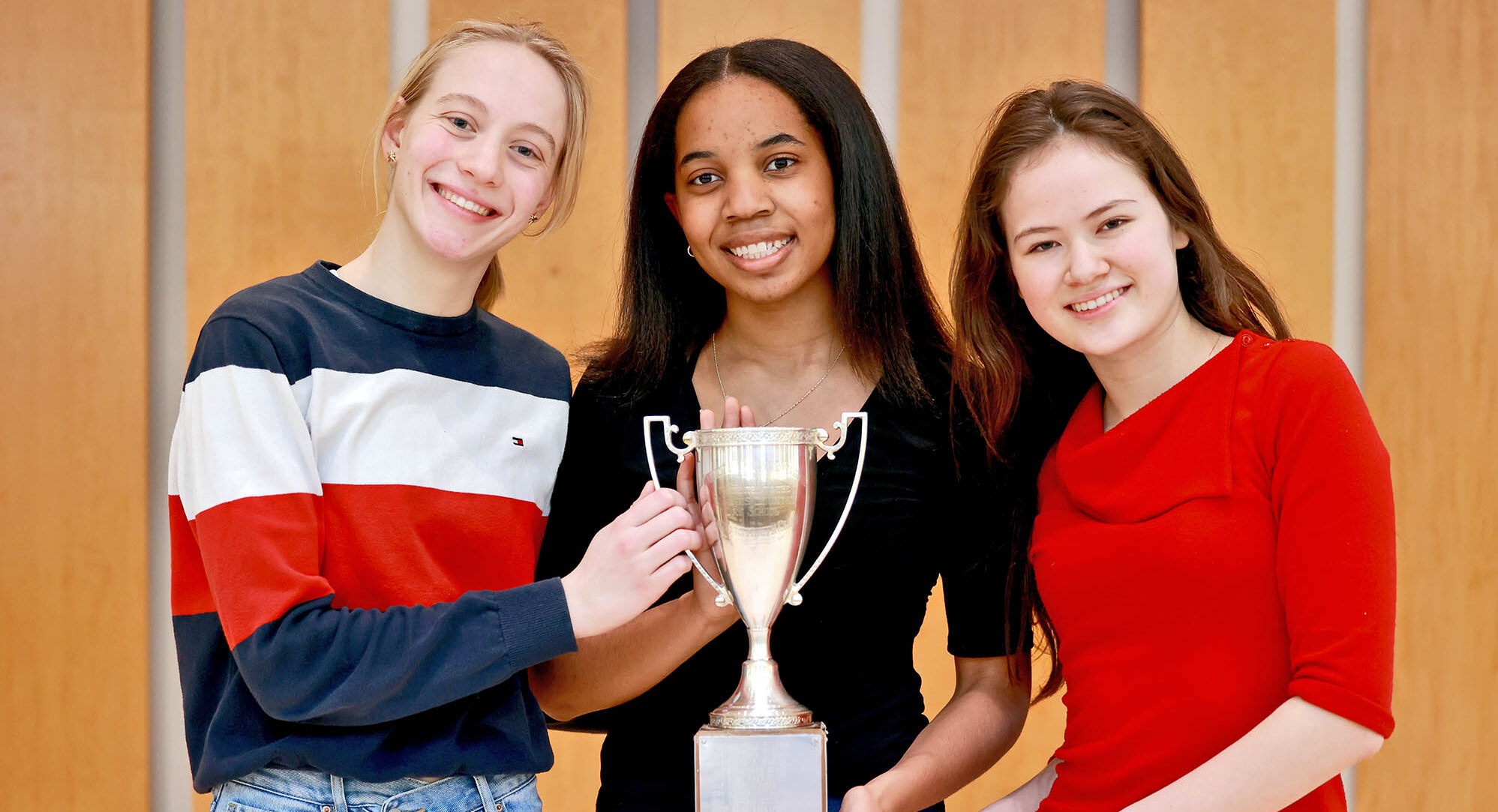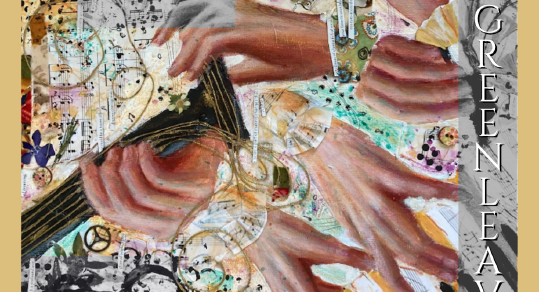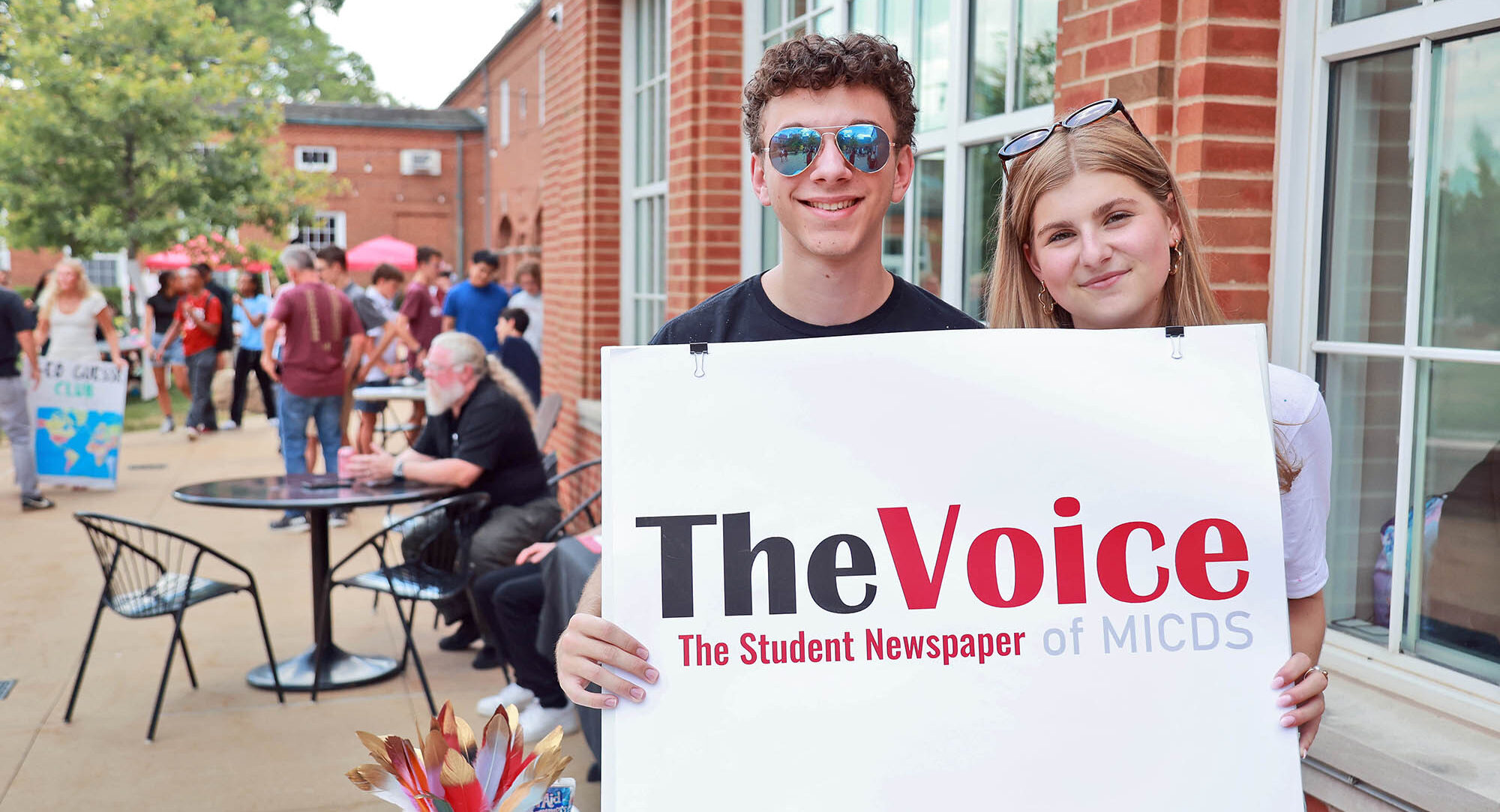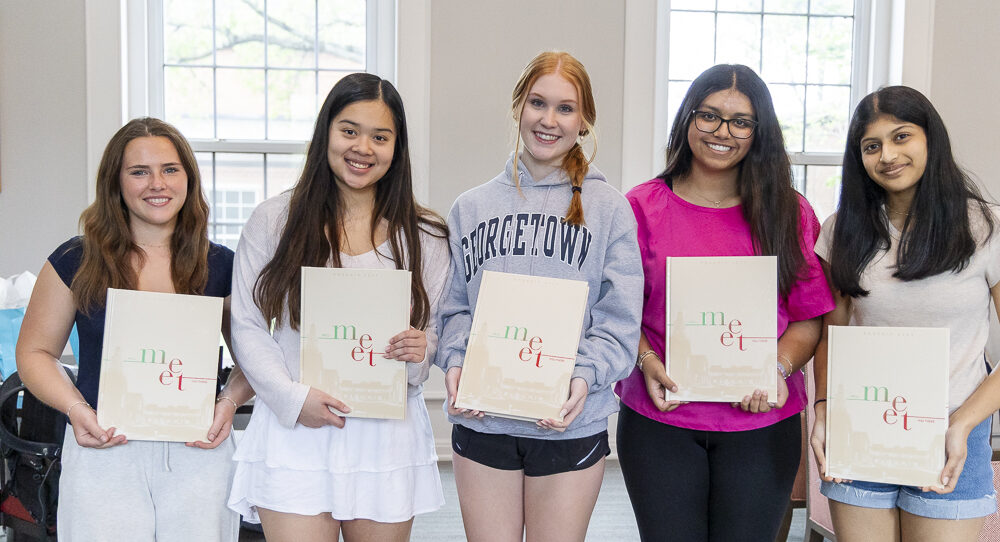English Department
English Department
The MICDS English Department believes that literacy in the 21st century moves beyond the skills of reading and writing. Our goal is to support our students as they engage, create, and consider a wide range of texts and genres. We ask them to constantly question the text as well as their responses to the text, considering the author, the era, and the audience while contemplating who has the power in the text and who may be excluded. Communication in the 21st century requires students to grapple with language and mode from rhetoric to visual analysis to presentation design: our students understand that sharing their ideas and conclusions can come in the form of a five-paragraph essay or a wide variety of other modes. The foundation of all of this work remains the deep need for empathy and commitment to our Mission to “embrace all…[the world’s] people with compassion.”
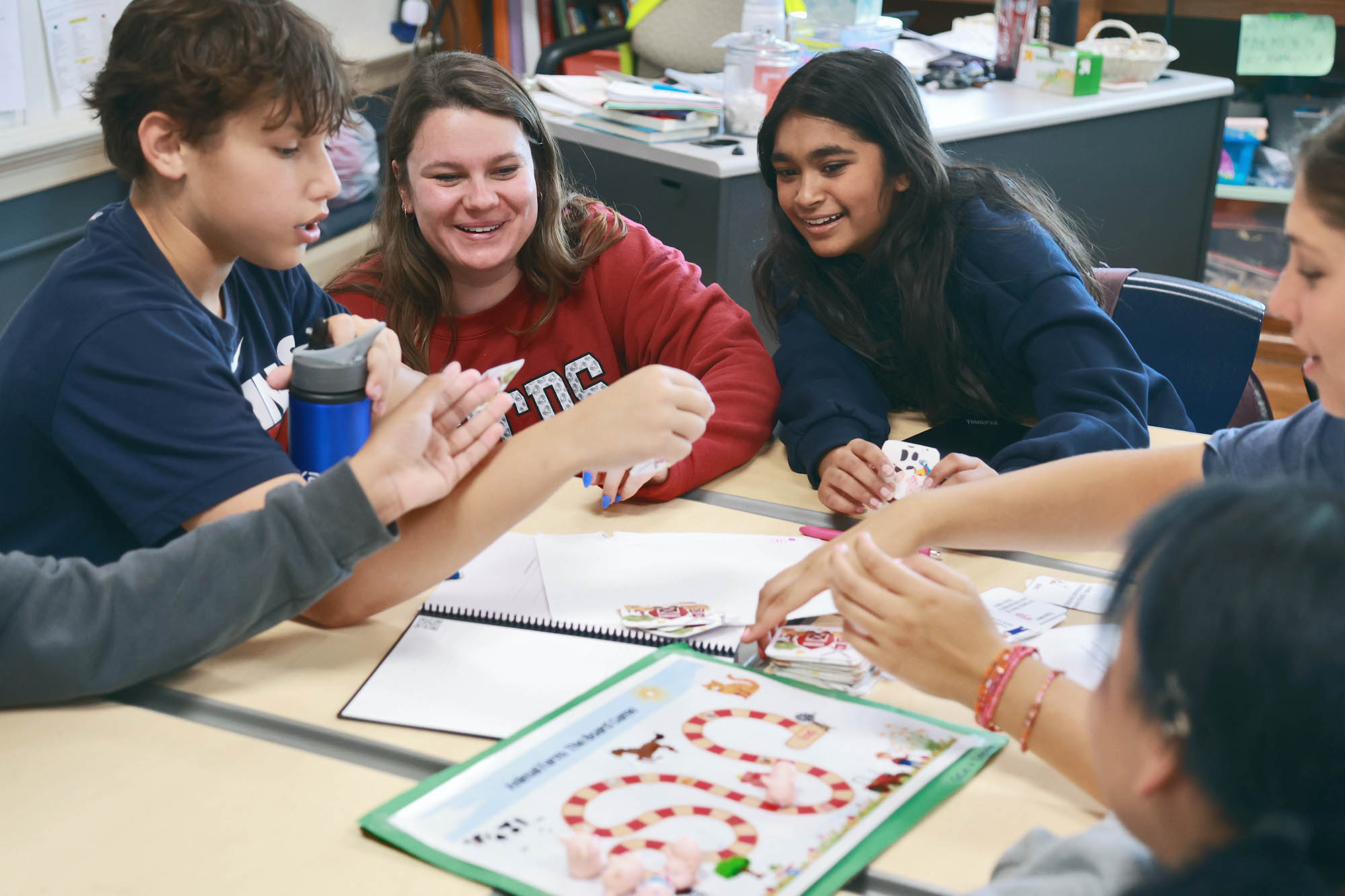
English Faculty
Meet Our Faculty
Independent Reading
- Letter to Families Regarding Independent Reading
While many students have fond memories of reading at home, at school, or in the library during elementary school, it seems to be an unfortunate by-product of growing up that time for reading seems to wane as children get older. Whether it is the demands of school or co-curricular activities or the siren song of social media and other electronic devices, research clearly indicates that students read less as they get older. But we also know that “four decades of research have established that voluminous, pleasurable reading is a key to literacy development” (Harvey and Ward, 2017). In this effort to help students regain their love of reading and build their reading stamina in an age of distraction, the MICDS English department is committed to a carefully-scaffolded independent reading program.
The NCTE (National Council of Teachers of English) states that “[t]he goal of independent reading as an instructional practice is to build habitual readers with conscious reading identities.” With this in mind, we have crafted the following goals for our program:
- For students to begin to know their own reading identity and understand that it will be ever-changing
- For students to know how to find books that serve their current purposes on their reading journey
- For students to learn how to be reflective about their own reading, set goals on their reading journey and reassess those goals from time to time
- For students to learn how to remember, become or continue to be a sustained reader
These goals will enhance our current reading instruction. Students will still read shared texts with their classmates and teacher throughout the year; they will not lose the benefits of a “grappling with complexity in a class of peers, led and scaffolded by an expert in the field” (Roberts, 2018). But what they will gain by reading independently as well is the chance to discover their own answer to this question: why, beyond academic performance, do they value reading? Some read for escape, some to gain empathy for others, some to fuel a passion on a particular topic, some to see themselves. There is no single reason to be a lifelong learner, but each of these pursuits seem equally worthy.
Because student choice is key to a vibrant independent reading program, we will be spending class time showing students resources and teaching strategies for finding their next book. Please know that we respect your families’ right to talk about what books you find appropriate for your child and will support decisions that you make. We have several ways for students to access books. They can use our classroom libraries, our online Sora account through the school library, the school or public library, books from home, books from local Little Free Libraries or purchase books. Each method is fully supported by our department, and we hope you will choose what is best for your family.
- MICDS Independent Reading Reader’s Rights
The right to skip pages.
The right to abandon a book.
The right to reread.
The right to listen to a book if you are reading along.
The right to escapism.
The right to browse.
The right to share books.
The right to talk about books.
The right to not defend your selections.Adapted from Daniel Pennac, 2006
Extracurriculars
Department-related Extracurriculars
In the Upper School, students have opportunities to participate in the following department-related extracurricular activities:
